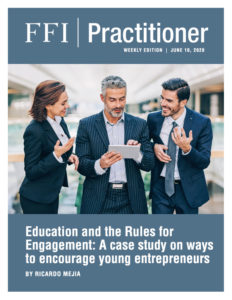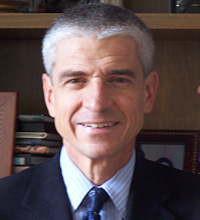
View this edition in our enhanced digital edition format with supporting visual insight and information.
Thanks to Ricardo Mejia for this case study discussing how education and clear rules of engagement may still be the best strategy for developing young entrepreneurs in family enterprises. Here is his description of the rules of engagement for a fifth-generation company, punctuation by comments from a fifth-generation family member who is an entrepreneur in Colombia.
He fell in love with Colombia, and like so many other entrepreneurs who have been to Medellín, he decided to set up his first company in this city. His family had lived in Argentina, where his father was a director of Alcampo. As a result, he learned Spanish and travelled throughout Latin America as a child and young adult.
Now, at just thirty-two years old, he runs a chain with hotels in Medellín, Bogotá, San Agustín (Huila), Santa Marta and Quito. But his business is not hospitality. Rather, his purpose is to give his guests memorable experiences, –a goal that few people ever achieve.
The secret to success
Before and during the Covid-19 pandemic, the secret of Nicolás’ success lies in his vocation as an entrepreneur, the education that his family has given him, and the support he continues to receive from family members through structured rules of engagement. Nicolás belongs to the fifth generation of the Mulliez family. His grandfather and his grandfather’s cousins founded Auchan (known as Alcampo outside France), Leroy-Merlin, Kiobi, Saint Moclou, Norauto, Decathlon, Kiotou, Pickwick and others.
Over the years, the family has identified certain educational goals and rules for engagement that family members who wish to be successors or propose entrepreneurial projects need to embrace. Examples are:
- Participate in internships in the family companies beginning at the age of fifteen. In Nicolás’ case, he worked as a cashier, sales assistant, and warehouseman at Auchan, gaining valuable experience for his current business activities.
- Work for one year to prepare a business plan and secure the approval of a supervisory board before receiving support for any entrepreneurial project. During the course of this year, Nicolás had access to the knowledge and advice of experts from any of the group companies.
Ultimately, Nicolás got approval for his project, and the supervisory board has been guiding him since then. For Nicolás’ company, the supervisory board is made up of one family member and four non-family members. A full online report must be submitted to the board every two month, and each year the members come to Colombia and perform a complete review of the business.
How did it all start?
This formalized approach to family leadership and entrepreneurship started more than 50 years ago with a principle developed by Nicolás’ great-great-grandfather, who founded the first company. It is –“Everyone in everything.” In the ventures that receive support, the entire family enters as a shareholder. It does not matter if the new venture is a competitor of other family-owned companies, as in the end everyone benefits from the competition.
Nor does the proposer of a new venture have to confront the frequent restrictions of whether or not family members can work at the new company. With more than three hundred companies in operation today, there is room for everyone. But the rules of engagement are clear, insisting that “no one from the family has a guaranteed position at any of the companies; the best candidates are selected for each role, whether they are family members or not.”1
For both family members and non-family members, career progress will depend on good performance and appraisals. Otherwise, they can be dismissed from the company. This means that one family member in a high managerial position can fire another family member for poor performance.
Recent developments
In 1995, In order to keep families together, it was agreed to bolster the “Affectio Societatis”2 under the principle that “We only love what we know.” Here are three examples of the changes implemented that foster entrepreneurship in particular.
- Improve family communication by holding two family conventions per year, publishing a quarterly newsletter, and creating a family Facebook page which includes both family members and company employees.
- Assist in career planning for family members who want to work at one of the companies and/or set up their own ventures.
- Expand training with company visits, conferences, study tours around the world and increased opportunities for education in corporate governance. A few years ago, Nicolás arranged a two-week learning trip to Colombia. Sixty relatives came, visiting many family businesses, including the renowned Andrés Carne de Res restaurant. This trip gave participants an insight into Colombia’s love of sports and it was later decided to open Decathlon stores in Colombia.
Additionally, a Family Office was created. Today it has more than 200 professionals –50 of whom work solely on training strategies for successors, appraising the skills of family members who want to take part in any of the company’s activities. The Family Office is also responsible for looking for family members with high potential and making development plans for and with them, so that in the future they can become CEO of one of the larger family companies.
What’s next?
Aware of the speed at which businesses change, every six years the Mulliez family and its companies draw up a thirty-year forecast in order to confirm everyone’s desire to continue as a united business family and define which industries should be emphasised.
The objective of most recent meeting, held in October 2014, was to define the vision for 2035. Issues such as “Why and for whom do we want to stay together for the next 20 years?” were considered, and workshops were held for everyone to express the meaning they want to give to their lives.
In a recent interview, Thierry Mulliez, fourth generation and chairman of the Mulliez Family Association, explained that “our model is based on a commitment to equality and to sharing everything. We have all been educated in traditional concepts: be careful with money, plan for the long term, work hard, respect and promote individual initiative.”
Family businesses are complex entities and as practitioners we face great challenges, but in so far as we can teach our clients that education is a never-ending process, they will have better opportunities to succeed in the future.
References
1“All for one: The Mulliez Dynasty’s secret pact”, CAMPDEN FB (September 1, 2007), by Bertrand Gobin, author of the book Le Secret des Mulliez
2Affectio societatis is the common will of several legal persons or legal entities to merge into one entity. It is a key characteristic of a company under French law. Articles 1832 and 1833 of the French Civil Code form the basis of this principle, although since there is no statutory definition, it has also been shaped by jurisprudence. (Wikipedia)
About the Contributor

Ricardo Mejia, CFBA, CFWA, is a former FFI board member. After a long career as manager in public and family owned companies, he developed extensive experience in corporate governance, strategy, and KPI management. He has been professor in the management programs at Universidad de Los Andes and Universidad EAFIT, is a contributor to several Colombian newspapers, and is frequently invited as lecturer in national forums. Ricardo can be reached at [email protected].

View this edition in our enhanced digital edition format with supporting visual insight and information.





